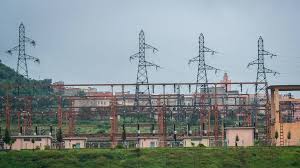Portugal turns to Morocco power link as France blocks EU grid

Doha: With France continuing to stall energy links from the Iberian Peninsula, Portugal is weighing an electrical interconnection with Morocco — especially as Spain already maintains an existing link with the North African country.
Portuguese Environment and Energy Minister Maria da Graça Carvalho announced the potential shift during meetings in Brussels on Wednesday. The move comes after last month’s massive blackout exposed the Peninsula’s energy vulnerability.
“In the case of Portugal and Spain, the most logical and rational interconnection is with France,” Carvalho said. “But we are also considering an interconnection with Morocco.”
The minister delivered a joint letter with Spanish counterpart Sara Aagesen to EU Energy Commissioner Dan Jørgensen. The formal request demands political and financial support for French connections and calls for “swift and effective integration of the Iberian Peninsula into the EU energy system.”
Current interconnection levels reach just 2.84% between Iberia and France. EU targets require 10% by 2020 and 15% by 2030.
Spain’s Prime Minister, Pedro Sánchez, expressed his heartfelt gratitude to Morocco for its vital assistance in restoring electricity after an unprecedented power outage affected the entire Iberian Peninsula.
Spanish PM Thanks Morocco for Key Role in Resolving Major Power Outage Crisis
April 28, 2025
“We want France, because of this incident, because of the internal market and because of solidarity with other countries, to see also the advantage of everyone being interconnected,” Carvalho stated.
She requested a trilateral meeting with the French, Spanish, and Portuguese energy ministers, with the European Commission mediating the discussions.
France shows limited interest in expansion plans and continues to stand in the way of broader energy interconnection efforts. Two Pyrenees connections previously included in French network planning no longer appear until 2035.
“France shows little interest,” Carvalho said. “There exists an agreement, but there have been successive delays.”
The Moroccan alternative carries technical hurdles. “It would be more expensive due to distance and because it would be a submarine connection,” the minister explained. Yet it remains the strategic alternative, with agreements already in place to strengthen electrical cooperation between the two shores of the Mediterranean.
Portugal’s slower recovery from the April 28 blackout drives the urgency. “The fact that we do not have those connections made the process slower,” Carvalho noted. “If the connection with France were stronger, recovery in Spain would have been faster and could have reached Portugal earlier.”
Morocco leaped into action during the crisis. The country unleashed 38% of its production capacity to rescue Spain through existing submarine cables. Within hours, energy flowed northward in a rare reversal of normal patterns.
As power restoration began, Spanish Prime Minister Pedro Sánchez publicly thanked Morocco the same day, citing the country’s rapid support.
“Electricity has been restored in some regions of northern and southern Spain thanks to the interconnections with France and Morocco,” Sánchez said. “I want to thank these two countries for their solidarity at this time.”
Morocco flipped its energy equation during the emergency. The country typically imports 778 megawatts from Spain but fired 519 megawatts northward during the crisis.
Spanish Foreign Minister José Manuel Albares later commended Morocco for critical support. “This is yet another demonstration of the excellent state of our relations with our neighbors, especially with Morocco,” Albares told parliament.
The Morocco-Spain connection operates through two submarine lines with 1,400 megawatts capacity. A third cable under development will add 700 megawatts by 2026. Infrastructure foundations span decades of cooperation.
ENTSO-E will investigate the April blackout’s causes. Initial suspicions point to southern Spain, particularly Andalusia. Experts do not rule out cyberattacks but consider them unlikely.
The investigation will examine renewable energy impacts and grid management systems. “That could be one of the causes, but it is not yet proven,” Carvalho concluded.
Portugal wants the blackout investigation completed within six months. By law, ENTSO-E has until next summer to deliver findings. Carvalho argues the incident’s severity requires much faster conclusions than the standard legal timeline allows.





